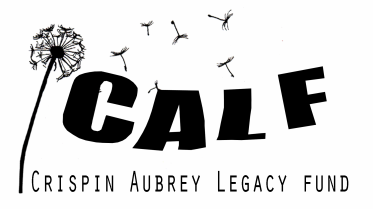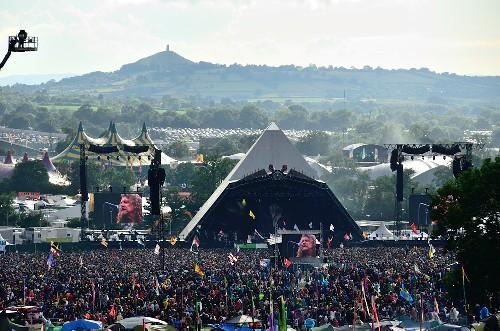|
...But it still needs your help.
This year Glastonbury Festival will launch a host of exciting new environmental initiatives. These are aimed to reduce resource usage, emissions, wastage and more. Lucy Smith has been overseeing the green initiatives since 2008 and has grown up with the festival. We caught up with her to discuss why they’re hoping this might be the greenest year in the events rich history. The scale of Glastonbury is huge, where do you start when it comes to reducing the impact? As well as the 140,000 festival-goers, we have to consider the production aspects as well. We’ve got 40,000 crew, lories of equipment and generators which bring temporary power all onto a greenfield site. So there’s many issues with festivals which don’t make them very sustainable operations. That’s why we look at every aspect of it possible as a team. The festival always encourages people to be sustainable before they even arrive… Absolutely. We’re lucky because our website is a very strong tool for us. As Glastonbury starts approaching it nearly has a million people going through the page. This means we’ve got a very captive audience so we can get any messages we want to get out before the event. This varies from environmental matters such as what they bring, how they travel, how they behave on-site and also how they leave. We keep up that communication because our audience is very receptive. So what are Glastonbury’s biggest environmental challenges? Minimising waste is a massive one for us because obviously that many people generate a lot of it. Our first mission was to introduce the stainless steel water bottle and re-fillable kiosks, this encouraged people to use our bottles or to bring a re-usable one to the site. It’s about avoiding bottled water which means reducing the plastic waste dramatically. We really try to highlight single-use waste to our audience as it’s not just about the festival, we also want to influence behaviour in the outside world. Our message to festival-goers is to take what they bring with them and don’t leave it on the farm. Hasn’t the stainless steel cup has been rolled-out for the first time this year? Yes, this is aimed to reduce the cardboard cups and we’re hoping it will really reduce our waste figures. These will be in the bars at The Park. That’s a really big thing because in the past people serve a pint and then they don’t ever see the cup again. It’s a very different practice for the bar operators, so it’s exciting but also quite scary. If you buy a cider, ale or lager in a pint cup, it will be exclusively in a stainless steel cup. It’ll be very different to see the area without a load of pint cups all over the floor as well. It’s lovely that they’re British stainless steel as well… Exactly, and we’re very proud of that. There’s a high percentage of recycled stainless steel in it. In terms of its life-cycle, it’s infinitely more than plastic. When plastic comes to the end of its life, if it gets recycled it just ends up as another low-grade product. This on the other hand gets melted down and never decreases in quality. They’re great. Is there anything new on the site this year that will help you guys? When people bought their tickets they had to tick a box to say they signed up to our pledge. This is about using the bins, taking home their belongings and not peeing on the ground. Alongside that we’ve introduced something called ‘Worthy Warriors’ which is about encouraging campers to support our stewards. It’s about loving the farm and leaving no trace. This way we can hold people accountable because they’re actually signing up to a document. There’s enough Glastonbury goers who really do care. So there’s a few things we’re rolling out which could become more prominent in the future. Tell us about how public transport aids the reduction of CO2? We’ve gained some really good ground with this after a lot of hard work. We’re increasing the figures in terms of compulsory public transport tickets. We’re working on making this a positive experience to make sure these people get priority for their efforts. Through a green travellers scheme, they get discounts and other perks as way of encouragement. Coach tickets also go on-sale first so it’s for people who actually want them rather than those buying them in a panicked state. What would be your main message to festival attendees this year? The big message is to use the loos and not be tempted to urinate wherever they feel the need to go. The other main on is to love the farm and leave no trace. With more environmental measures implemented every year, how does this reflect in statistics? We’re introducing many more things this year such as the cups so we’re minimising a major waste-stream. There will be some big dents in those figures this year. Also with the extra festival-goer awareness schemes, we think that there’s going to be less equipment leftover. We would hope with these initiatives that this will be the best year ever in terms of these figures. What’s the most rewarding part of your job? It must be quite stressful at times… With my job there’s a lot of organisation pre-festival. It’s quite hard when you get all the ticket holders on-site so I personally find the event quite hard. It can feel like a disaster if you see a single bin overflowing. So you can have a lot of good intentions but sometimes when it’s in full-swing, people can have the best intentions in the world and things can go out the window. Festival goers really need to be environmentally conscious. Glastonbury Festival takes place from June 22nd - June 26, 2016. We’ll be in our usual field with plenty of exciting events happening. Blog by CALF Scholar, Rhys Buchanan, Courtesy of Greenpeace Greenwire
0 Comments
|


 RSS Feed
RSS Feed
